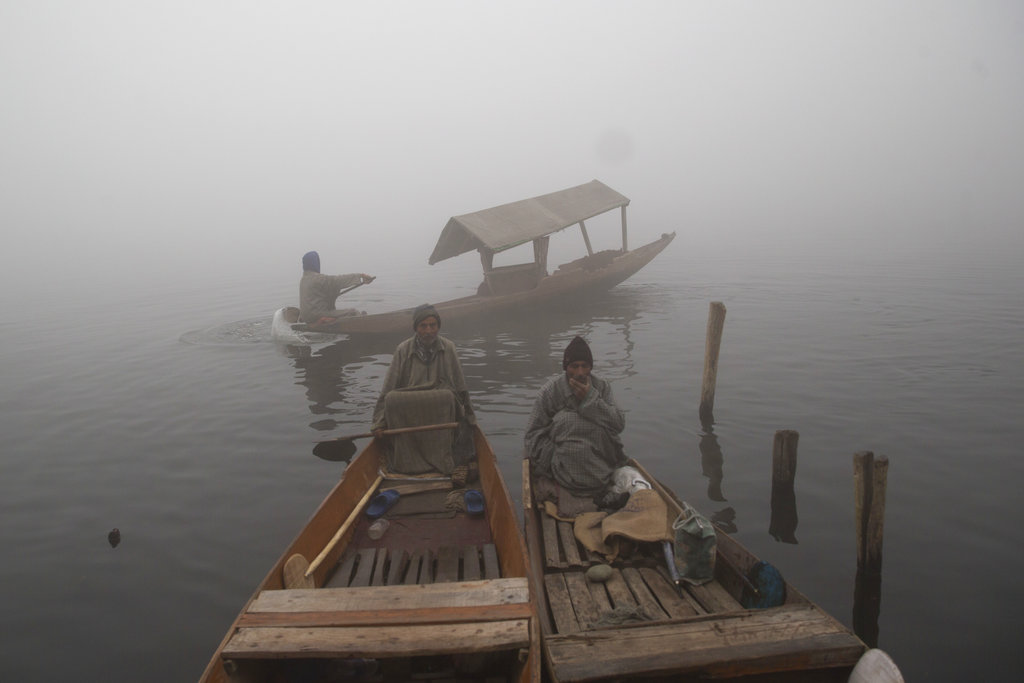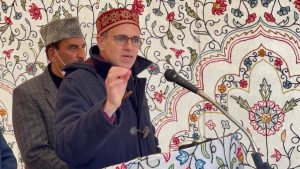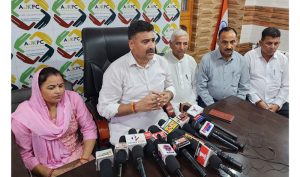
Srinagar Shivers Under Bone-Chilling Cold as Thick Fog Blankets City, Records Coldest Night
People in the Valley’s summer capital Srinagar woke up to a thick layer of fog on Monday as the minimum temperature during the night had plummeted to -0.8°C in the city
Kashmir witnessed sub-zero temperatures and foggy weather on Monday, affecting life in the Valley, with Private Schools Association of Jammu and Kashmir (PSAJK) urging the administration for early winter vacations.
People in the Valley’s summer capital Srinagar woke up to a thick layer of fog on Monday as the minimum temperature during the night had plummeted to -0.8°C in the city.
The foggy weather made it difficult for vehicles, particularly school buses to traverse early morning as the visibility was low.
The weather remains clear to partly cloudy with fog in the mornings in the Valley these days. The MeT has forecast generally dry and cloudy weather till November 26 except a short spell on the intervening night of November 23 and 24.
“We expect a short spell of scattered rains in plains and snowfall in upper reaches on the night between November 23 and 24. The fog is expected to continue due to lower temperatures and dusty atmosphere. It is clear on the morning of November 24,” said meteorologist Mohmmad Hussain Mir.
On November 10, Jammu and Kashmir had experienced fresh snowfall and rains affecting life and bringing down the temperatures in the Himalayan region.
The meteorological department said that the minimum temperatures have gone below zero at many places in the Valley. The tourist resort of Pahalgam in south Kashmir recorded a low of -2.6°C, while Kupwara in north Kashmir witnessed -0.8°C. The ski resort of Gulmarg in north recorded a minimum of -1.2°C during the night.
Difficult for children to reach school: PSAJK
“The weather appears to have turned bad early this season. The chill is affecting our children’s health as they have to leave home early in the morning for classes. Many school going children are suffering from cold and fever. We want schools and education authorities to announce early winter vacations for lower classes at least,” said Rukhsana, a housewife with two school going children.
Last year, the administration had started winter vacations for lower classes upto 5th standard from December 1, for classes 6 to 8 from December 12 and for Classes 9 to 12 from December 19.
The Private Schools Association of Jammu and Kashmir (PSAJK) said that fog coupled with sub-zero temperatures have made it difficult for children to reach school in this rough weather. The association asked the administration to announce winter vacation for schools, especially for lower classes on a priority basis.
The association said that they have been receiving representations from parents and even schools about the inclement weather conditions. “For a 4-year-old kid, it is extremely difficult to get up early and get ready for school during this weather. We are not a developed nation where houses, buses, and schools are all centrally heated. We have to adjust according to the weather,” said a spokesperson of PSAJK in a statement.
The association said that exposure to extreme foggy conditions and minus temperatures can have a negative impact on the health of children.
From this year, the administration changed the academic session in Kashmir holding exams in March to coincide with the Jammu division of the union territory. Earlier, the examination in Kashmir would be held in October-November and then the educational institutions would start a new academic session and close for winter vacations. In Jammu, where the temperatures remain relatively higher, the examinations continue to be held in March.
The PSAJK reiterated its demand for re-adjusting the academic calendar in accordance with the local temperature. “We have time and again conveyed to the administration that the March session is not feasible for Kashmir. Our schools usually complete their syllabus by November. We have harsh winters, and during the March session, these months are simply lost, as students don’t know whether to revise old lessons or use the time to study the syllabus of new classes,” the association said.
“The March session has created numerous problems, and it needs to be dealt with before more damage is done. The October session is a norm in almost every country that has harsh winters and we are not demanding something extraordinary,” it said.

